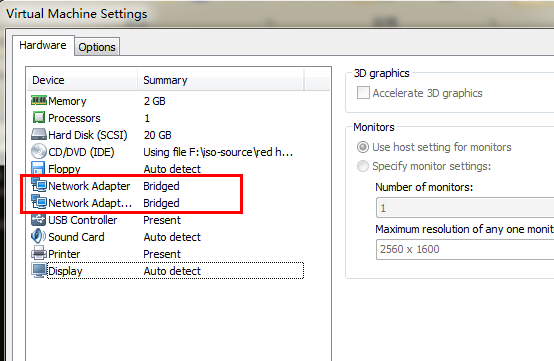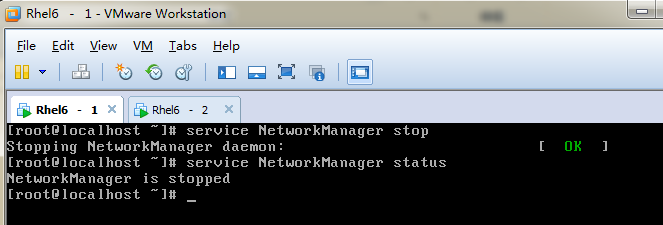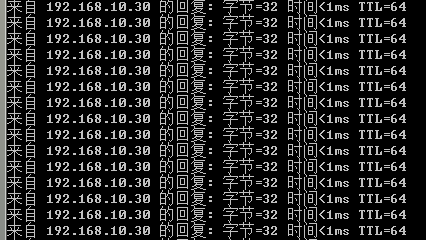Realizing multiple network card binding in Linux system in practice
| Introduction | For servers, the stability of network equipment is also important, especially network cards. In production systems, the reliability of the network card is even more important. Multiple network cards are bound to one IP address. When one network card is physically damaged, the other network card is automatically enabled and provides normal services That is: by default, only one network card works, and other network cards serve as backup network cards to provide redundant support. |
Highly efficient overlay network transmission rate, load balancing
Network load balancing is commonly used in file servers. For example, three network cards are used as one to solve the problem of excessive traffic and excessive pressure on the server network for one IP address.
For file servers, such as NFS or SAMBA file servers, no administrator will create multiple IP addresses for the file servers on the intranet to solve the network load problem. If the file server is on an intranet, most of the file servers use the same IP address for the convenience of management and application. For a local network of 100M, the network pressure is extremely high when the file server is used by multiple users at the same time, especially SAMABA and NFS servers. In order to solve the problem of using the same IP address and breaking through traffic restrictions, after all, network cables and network cards have limits on data throughput. If you have limited resources, implement network load balancing.

Steps:
1. First set up 2 network cards for the virtual machine:

2. Close NetworkManager in the system:

3. Edit the file /etc/modprobe.d/dist.conf and add alias bond0 bonding:

4. Modify ifcfg-eth0 ifcfg-eth1 in /etc/sysconfig/network-scripts and create bond0:

miimon refers to how often to check the network, the unit is ms (milliseconds)
mode=0: Balanced load mode, both network cards are working, load balancing.
mode=1: automatic active and backup mode, one of the network cards is working (if eth0 is disconnected)
will automatically switch to another block network card (eth1 as backup) Experimental results:
1. Restart the network. service network restart, or computer.
2. Use another virtual machine to ping the host to which the network card is bound.
3. If you ipdown any network card, network communication will not be affected.

Original article from: https://www.linuxprobe.com/ethernet-channel-bonding.html
Original address of this article: https://www.linuxprobe.com/ethernet-channel-bonding.htmlEditor: Liu Xun, auditor: None
Recommend some articles related to this article for you:
- Linux changes the network card name
- These cloud security errors put data at risk
- The capacity of a single strip can be up to 256GB of DDR5 memory starts shipping this year
- The history of data center development
- 7 marketing tips for blockchain startups
- The father of Linux removes AWS engineer’s patch
- The switching relationship between the terminal interface and the graphical interface in Linux
- "Front-end Engineering: System Design and Practice" pdf e-book free download
- Your understanding of the Linux window Do you know the management program Tmux?
- Important MySQL document storage knowledge points literacy
The above is the detailed content of Realizing multiple network card binding in Linux system in practice. For more information, please follow other related articles on the PHP Chinese website!

Hot AI Tools

Undresser.AI Undress
AI-powered app for creating realistic nude photos

AI Clothes Remover
Online AI tool for removing clothes from photos.

Undress AI Tool
Undress images for free

Clothoff.io
AI clothes remover

Video Face Swap
Swap faces in any video effortlessly with our completely free AI face swap tool!

Hot Article

Hot Tools

Notepad++7.3.1
Easy-to-use and free code editor

SublimeText3 Chinese version
Chinese version, very easy to use

Zend Studio 13.0.1
Powerful PHP integrated development environment

Dreamweaver CS6
Visual web development tools

SublimeText3 Mac version
God-level code editing software (SublimeText3)

Hot Topics
 What computer configuration is required for vscode
Apr 15, 2025 pm 09:48 PM
What computer configuration is required for vscode
Apr 15, 2025 pm 09:48 PM
VS Code system requirements: Operating system: Windows 10 and above, macOS 10.12 and above, Linux distribution processor: minimum 1.6 GHz, recommended 2.0 GHz and above memory: minimum 512 MB, recommended 4 GB and above storage space: minimum 250 MB, recommended 1 GB and above other requirements: stable network connection, Xorg/Wayland (Linux)
 Linux Architecture: Unveiling the 5 Basic Components
Apr 20, 2025 am 12:04 AM
Linux Architecture: Unveiling the 5 Basic Components
Apr 20, 2025 am 12:04 AM
The five basic components of the Linux system are: 1. Kernel, 2. System library, 3. System utilities, 4. Graphical user interface, 5. Applications. The kernel manages hardware resources, the system library provides precompiled functions, system utilities are used for system management, the GUI provides visual interaction, and applications use these components to implement functions.
 How to run java code in notepad
Apr 16, 2025 pm 07:39 PM
How to run java code in notepad
Apr 16, 2025 pm 07:39 PM
Although Notepad cannot run Java code directly, it can be achieved by using other tools: using the command line compiler (javac) to generate a bytecode file (filename.class). Use the Java interpreter (java) to interpret bytecode, execute the code, and output the result.
 vscode cannot install extension
Apr 15, 2025 pm 07:18 PM
vscode cannot install extension
Apr 15, 2025 pm 07:18 PM
The reasons for the installation of VS Code extensions may be: network instability, insufficient permissions, system compatibility issues, VS Code version is too old, antivirus software or firewall interference. By checking network connections, permissions, log files, updating VS Code, disabling security software, and restarting VS Code or computers, you can gradually troubleshoot and resolve issues.
 How to check the warehouse address of git
Apr 17, 2025 pm 01:54 PM
How to check the warehouse address of git
Apr 17, 2025 pm 01:54 PM
To view the Git repository address, perform the following steps: 1. Open the command line and navigate to the repository directory; 2. Run the "git remote -v" command; 3. View the repository name in the output and its corresponding address.
 vscode terminal usage tutorial
Apr 15, 2025 pm 10:09 PM
vscode terminal usage tutorial
Apr 15, 2025 pm 10:09 PM
vscode built-in terminal is a development tool that allows running commands and scripts within the editor to simplify the development process. How to use vscode terminal: Open the terminal with the shortcut key (Ctrl/Cmd). Enter a command or run the script. Use hotkeys (such as Ctrl L to clear the terminal). Change the working directory (such as the cd command). Advanced features include debug mode, automatic code snippet completion, and interactive command history.
 Where to write code in vscode
Apr 15, 2025 pm 09:54 PM
Where to write code in vscode
Apr 15, 2025 pm 09:54 PM
Writing code in Visual Studio Code (VSCode) is simple and easy to use. Just install VSCode, create a project, select a language, create a file, write code, save and run it. The advantages of VSCode include cross-platform, free and open source, powerful features, rich extensions, and lightweight and fast.
 Can vscode be used for mac
Apr 15, 2025 pm 07:36 PM
Can vscode be used for mac
Apr 15, 2025 pm 07:36 PM
VS Code is available on Mac. It has powerful extensions, Git integration, terminal and debugger, and also offers a wealth of setup options. However, for particularly large projects or highly professional development, VS Code may have performance or functional limitations.






